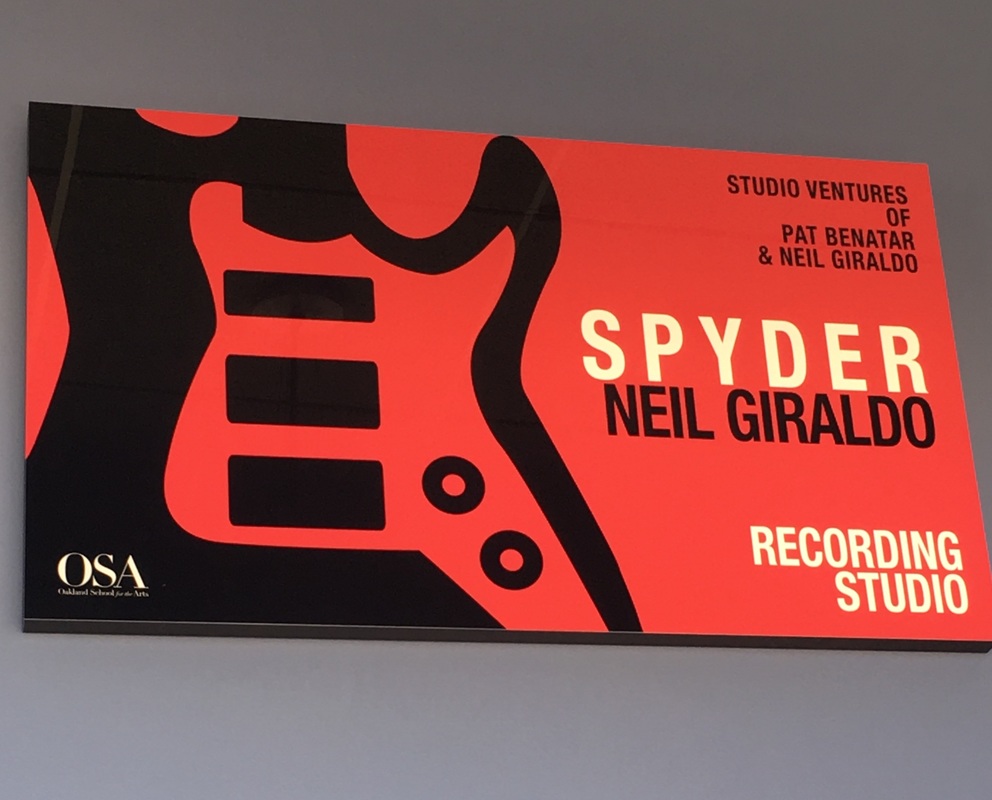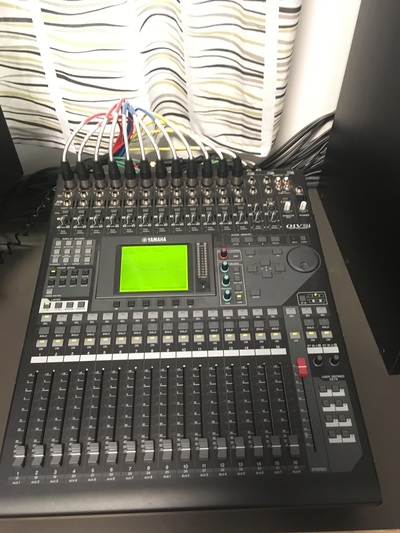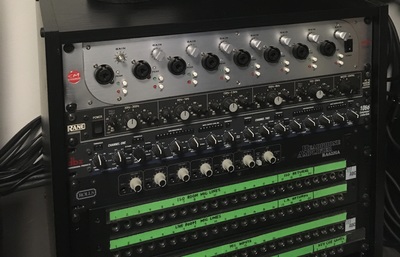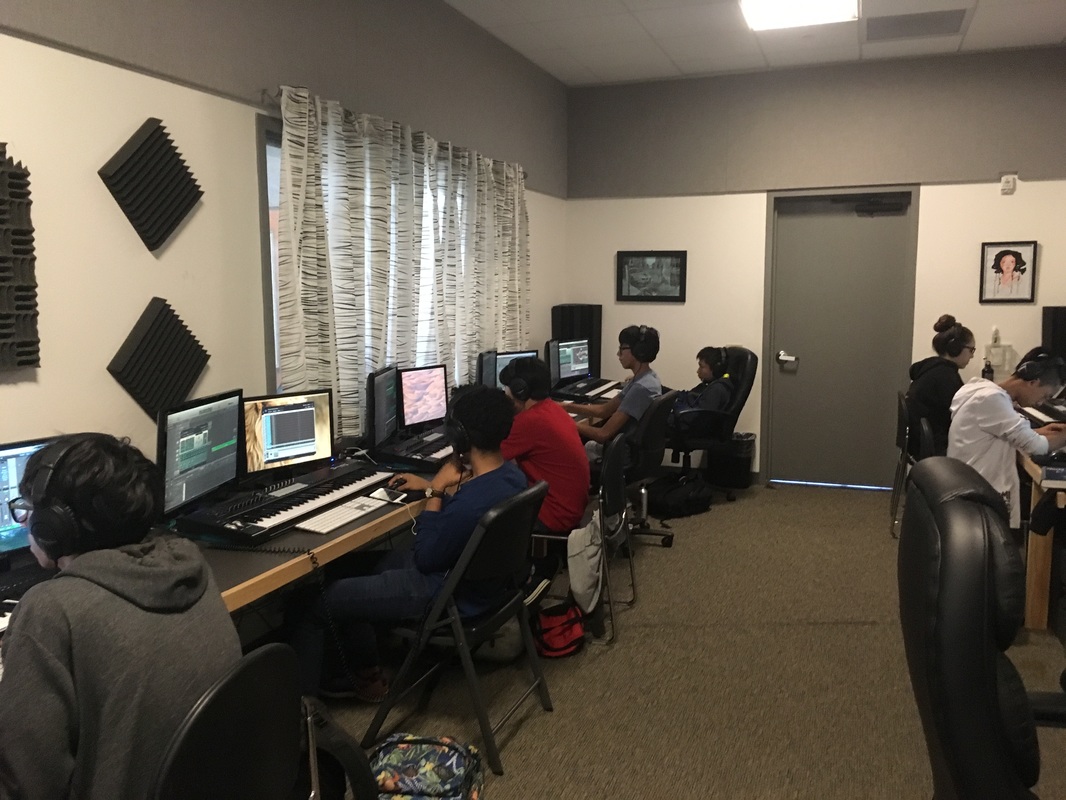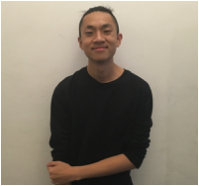 Kevin Xu, 11th grader and current Audio Production and Engineering student. He plays guitar and is a big fan of Korean rapper Keith Ape.
Kevin Xu, 11th grader and current Audio Production and Engineering student. He plays guitar and is a big fan of Korean rapper Keith Ape. Students at OSA are now able to immerse themselves in the art of sound recording in the school’s newest emphasis: Audio Production and Engineering.
What is Audio Production and Engineering exactly? “The cool way to talk about it is simply to say we make beats,” said 11th grader Kevin Xu, a former instrumental music student. “But it's a lot more than that. It's making beats and recording music and audio processing...we make everything sound good."
What is Audio Production and Engineering exactly? “The cool way to talk about it is simply to say we make beats,” said 11th grader Kevin Xu, a former instrumental music student. “But it's a lot more than that. It's making beats and recording music and audio processing...we make everything sound good."
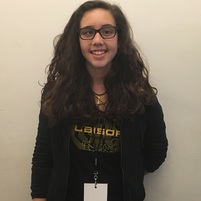 Elisa Minoue, 12th grader and current Audio Production and Engineering student. She is trilingual and plays the violin.
Elisa Minoue, 12th grader and current Audio Production and Engineering student. She is trilingual and plays the violin. 12th grader Elisa Minoue elaborated, “You learn how to make sound electronically and you learn how to record it. It’s the study of best placement of sound.”
Chaired by Chris McGovern, students in grades 9-12 learn the fundamentals of recording, sound design, live sound, and music production. They take this knowledge and apply it to audio in multiple arts, ranging from recording vocal students to setting up mics for the Digital Media department’s films.
Chaired by Chris McGovern, students in grades 9-12 learn the fundamentals of recording, sound design, live sound, and music production. They take this knowledge and apply it to audio in multiple arts, ranging from recording vocal students to setting up mics for the Digital Media department’s films.
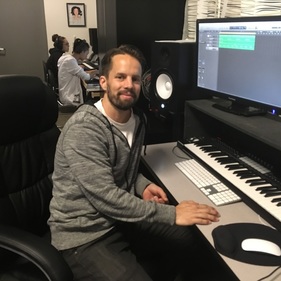 Chris McGovern, Audio Production and Engineering Chair, in love with his life.
Chris McGovern, Audio Production and Engineering Chair, in love with his life. “Audio Production and Engineering came about through a slow progression of course offerings,” said McGovern. “Originally Mr. Aton, the previous Instrumental Music Chair, brought me aboard to teach a Studio Production class in the recording studio that was completely unused at the time. When I saw the space, I began to realize the creative and collaborative potential of the recording studio at OSA.”
In 2014, McGovern got the opportunity to teach a second class called MIDI Production. The very next year, he became an official teacher and taught two more classes: Post Production Sound and Broadcast. This eventually led to the creation of a full year of courses and morphed into what OSA students now know as Audio Production and Engineering, or AP&E for short.
In 2014, McGovern got the opportunity to teach a second class called MIDI Production. The very next year, he became an official teacher and taught two more classes: Post Production Sound and Broadcast. This eventually led to the creation of a full year of courses and morphed into what OSA students now know as Audio Production and Engineering, or AP&E for short.
In the ten years that McGovern has been involved with audio production, the medium has grown more accessible to the everyday person. Software that used to be only be available to those with lots of money is now ready to download on your laptop. This growth in the attainability of the software makes it so anyone could learn the basics of production and take creative control of their work.
On the importance of of AP&E in an arts high school, McGovern believes that, “As artists they are getting the tools they need to take control of their projects in a changing music industry. It’s possible today to record, mix, master, publish and promote your own work without the help of a record label and contract.”
“It's a really big part of a musician's life to know how to record themselves and be able to master and edit their sound into something greater.” echoed Minoue.
By learning about audio production, Xu developed the ability to record his own band’s work as well as the work of fellow musicians.
“Everyone needs someone to record their new album or their EP.” Thanks to his experience in AP&E, Xu can be that person.
On the importance of of AP&E in an arts high school, McGovern believes that, “As artists they are getting the tools they need to take control of their projects in a changing music industry. It’s possible today to record, mix, master, publish and promote your own work without the help of a record label and contract.”
“It's a really big part of a musician's life to know how to record themselves and be able to master and edit their sound into something greater.” echoed Minoue.
By learning about audio production, Xu developed the ability to record his own band’s work as well as the work of fellow musicians.
“Everyone needs someone to record their new album or their EP.” Thanks to his experience in AP&E, Xu can be that person.
| Currently, AP&E has between eight and twelve students, all previous OSA students who transferred into the program. This year, non-OSA students looking to switch schools will be able to apply to AP&E, as the emphasis continues to grow and become a bigger part of OSA. |
